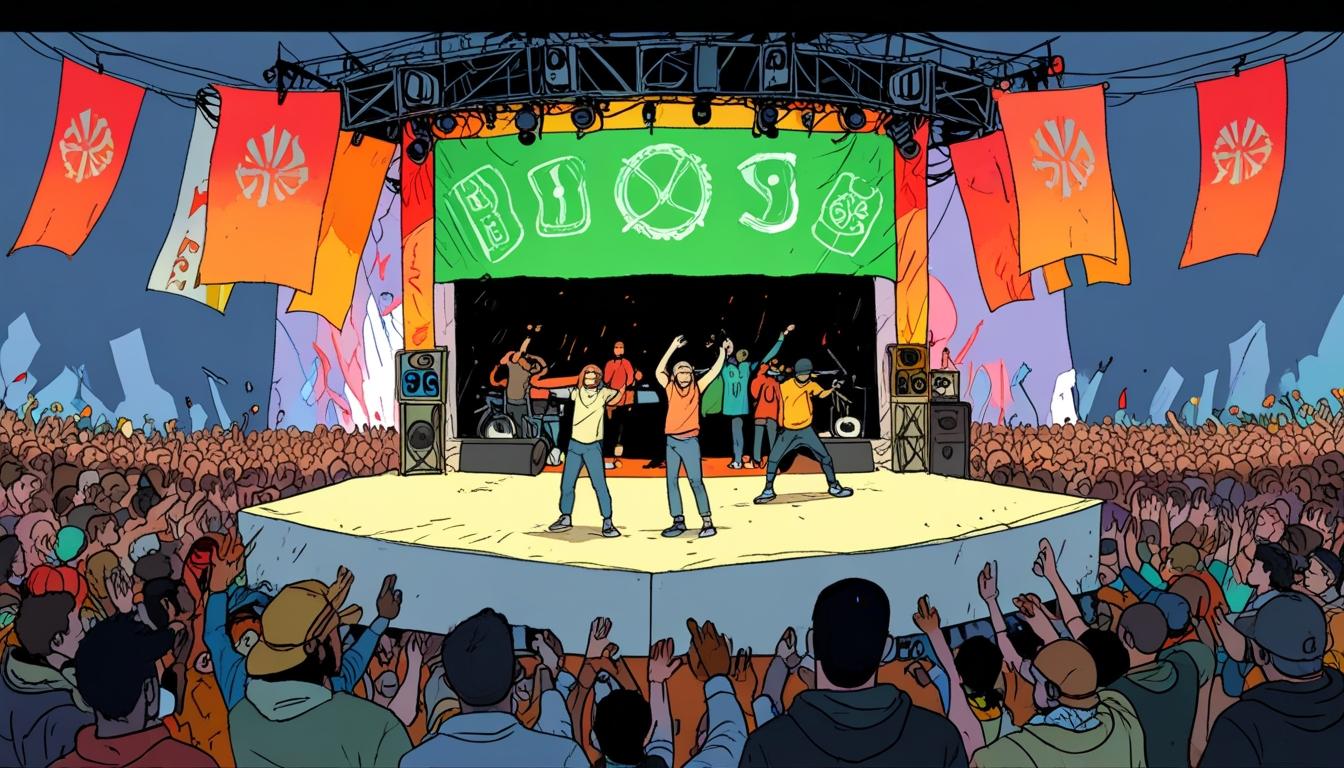Calls to remove the Irish hip-hop group Kneecap from the TRNSMT festival lineup have intensified following a series of inflammatory statements made by the band during their performances. The controversy reached a boiling point when a member of the group reportedly proclaimed, “The only good Tory is a dead Tory. Kill your local MP” during a 2024 show. Such remarks have garnered widespread condemnation from various political figures, including Prime Minister Keir Starmer, Conservative leader Kemi Badenoch, and First Minister John Swinney, with many deeming the band’s comments as crossing an unacceptable line.
In response to the growing unease, Councillor Molyneux has put forth a motion to Glasgow City Council, aiming to address the issue in an upcoming meeting. He articulates that the backlash against Kneecap stems from their vehement support for Palestine and suggests that the vilification of their statements is influenced by broader political narratives. Molyneux points out that while some artists face intense scrutiny for their views, others, who have committed acts of violence or espoused similar sentiments, appear to experience far less public outrage. For instance, the likes of Chris Brown and 50 Cent have faced criticisms for behaviour that could evoke similar ire yet continue to maintain their performance schedules in the city.
The motion includes a call to reassess local policing strategies, particularly in relation to protests, as Molyneux affirms the importance of peaceful demonstration as a cornerstone of democratic expression. He underscores a previous resolution from March, where Glasgow City Council had expressed solidarity with the Palestinian people, reflecting a growing awareness of the complexities surrounding issues of protest and artistic expression in today's political climate.
Furthermore, Kneecap’s visibility has surged in recent years, partly due to their politically charged semi-autobiographical film that screened at the Sundance Film Festival. Despite the band’s attempt to position their comments within a satirical framework, the ramifications of their statements have summoned serious discussions around free expression versus incitement. Acknowledging the potential for misunderstanding, Kneecap has issued apologies to the families of British MPs Jo Cox and David Amess, whose tragic murders demonstrate the severe consequences of political rhetoric.
Their polarising stance has led to calls from various quarters demanding that they be axed from festival lineups, a move viewed by some as an attempt to silence dissenting voices in the cultural sphere. Critics argue this suggests a troubling precedent where artistic expression is curtailed due to political backlash, while supporters claim it is crucial to uphold the right to protest and express dissent.
Simultaneously, the ongoing conversations have also prompted the UK government to confront its own policies regarding protest laws. Legislative measures perceived as restrictive have drawn criticism, with advocates urging a reconsideration to protect civic liberties without compromising public safety. The tumult surrounding Kneecap reflects broader societal tensions, particularly as the band continues to navigate the choppy waters of identity, expression, and political discourse characteristic of Northern Ireland's legacy.
As the debate unfolds ahead of the council meeting, the future of Kneecap’s participation in the TRNSMT festival remains uncertain, casting a spotlight on the intersection of music, politics, and free speech in contemporary society.
Reference Map
- Paragraphs 1, 2, 3, 4, 5, 6
- Paragraphs 2, 4
- Paragraphs 1, 4
- Paragraphs 1, 6
- Paragraph 6
- Paragraph 2
- Paragraph 1
Source: Noah Wire Services
